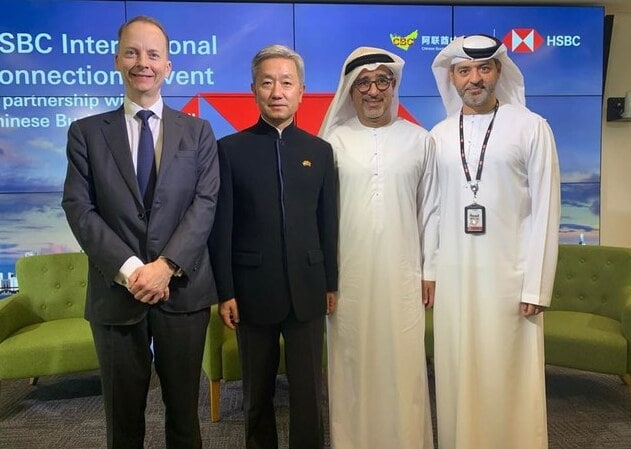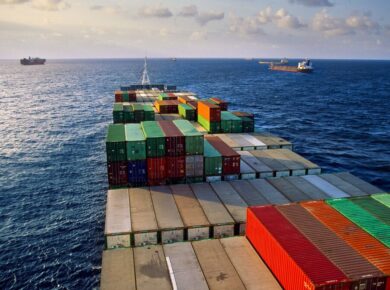HSBC CEO sees growth potential in Middle East-China trade and investment.
The Middle East-China trade corridor is experiencing unprecedented growth, and according to Stephen Moss, HSBC‘s regional CEO for the Middle East, North Africa, and Türkiye, this is encouraging the bank’s clients to invest in the region.
Moss made the remarks at the International Connections event, held at HSBC’s UAE headquarters, where he discussed the potential for growth in sectors such as trade, investment, and tourism.
The Middle East has traditionally been an important trading partner for China, with oil and gas being the main commodities traded between the two regions. However, in recent years, there has been a significant increase in trade in other areas, such as construction, technology, and consumer goods.
According to Moss, this trend is set to continue, with the Middle East becoming an increasingly important market for Chinese businesses looking to expand their operations overseas.
In addition to trade and investment, Moss also highlighted the potential for growth in the tourism sector. As more and more Chinese tourists visit the Middle East, there is a growing demand for hotels, restaurants, and other services catering to their needs.
HSBC is one of the largest international banks operating in the Middle East, with a strong presence in countries such as the UAE, Saudi Arabia, and Egypt. The bank has been actively promoting trade and investment between the Middle East and China, and has helped to facilitate a number of major deals in recent years.
One of the biggest challenges facing businesses looking to trade with China is the language barrier. However, HSBC has been working to address this issue, and has launched a number of initiatives to help its clients navigate the complexities of the Chinese market.
The tourism sector is also seeing significant growth, with Chinese tourists flocking to the Middle East in increasing numbers. In 2019, more than 1 million Chinese tourists visited Dubai alone, and the number is expected to grow in the coming years.
To capitalize on this growth, HSBC is working to provide its clients with the support and expertise they need to navigate the complexities of the Chinese market. The bank is also investing in digital tools and platforms to help streamline the trade and investment process, making it easier for businesses to expand their operations in both regions.
For example, the bank has established a Mandarin-speaking team in Dubai, which is responsible for providing support and advice to Chinese businesses looking to invest in the region. Overall, the growing Middle East-China trade corridor presents significant opportunities for businesses in both regions. With its extensive global network and deep expertise in both markets, HSBC is well-positioned to support its clients as they seek to capitalize on these opportunities and drive economic growth and development in the region.
HSBC has also been working closely with the Chinese government to promote trade and investment between the two regions. In 2018, the bank signed a Memorandum of Understanding (MoU) with the China Development Bank (CDB) to facilitate trade and investment between China and countries along the Belt and Road Initiative (BRI).
Under the terms of the MoU, HSBC and CDB agreed to provide financing and other services to support infrastructure projects in countries such as the UAE, Saudi Arabia, and Egypt.
The Middle East is one of the fastest-growing regions in the world, with a young and dynamic population, abundant natural resources, and a strategic location at the crossroads of Europe, Asia, and Africa. As the region continues to develop and diversify, there is enormous potential for growth in trade, investment, and tourism.
With its extensive global network and expertise in the Middle East and China, HSBC is well positioned to support businesses looking to capitalize on these opportunities and to help drive economic growth and development in the region.





